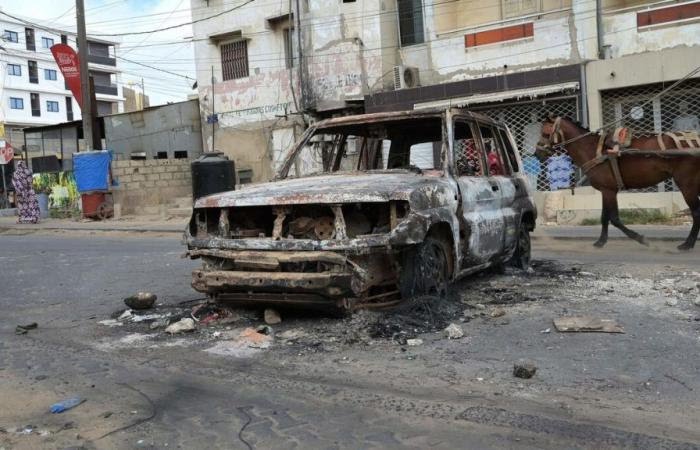Normalcy has returned to the streets of Senegal’s capital, Dakar, after several days of intense clashes between police and supporters of opposition leader Ousmane Sonko.
Senegal’s government temporarily blocked access to mobile phone data on Sunday, as part of efforts to douse tensions from days of uprising in the country.
The ministry of communication, telecoms, and digital economy stated in a statement that cellular internet data would be suspended for a specific time period in a bid to cut what it described as a spread of “subversive messages in a context of public disorder in certain localities.”
Three days of violent protests in the West African country have killed 16 people, making it one of the worst outbreaks of political unrest in decades.
The government restricted access to several messaging applications last week, but many people were able to dodge the outage by using virtual private networks, which hide the user’s location.
The outage was extended on Sunday to encompass all data on mobile internet devices in specific places and times, according to the statement.
At a news conference on Saturday evening, the Senegalese authorities said it would take all necessary measures to secure the country.
Human rights organizations have decried the government crackdown, which they claim has included arbitrary detentions.
The violent clashes began on Thursday, after Sonko was convicted of corrupting youth but acquitted of raping a saloon employee and threatening her with death.
Sonko, who did not attend his trial in Dakar, was sentenced to two years in prison. His attorney stated that no arrest warrant had been issued for him.
Despite the court pronouncement, the opposition leader denied wrongdoing in all the allegations against him while his supporters said the legal challenge is a plan to stop his 2024 presidential ambition by President Macky Sall. The Senegalese authorities denied the allegation.

